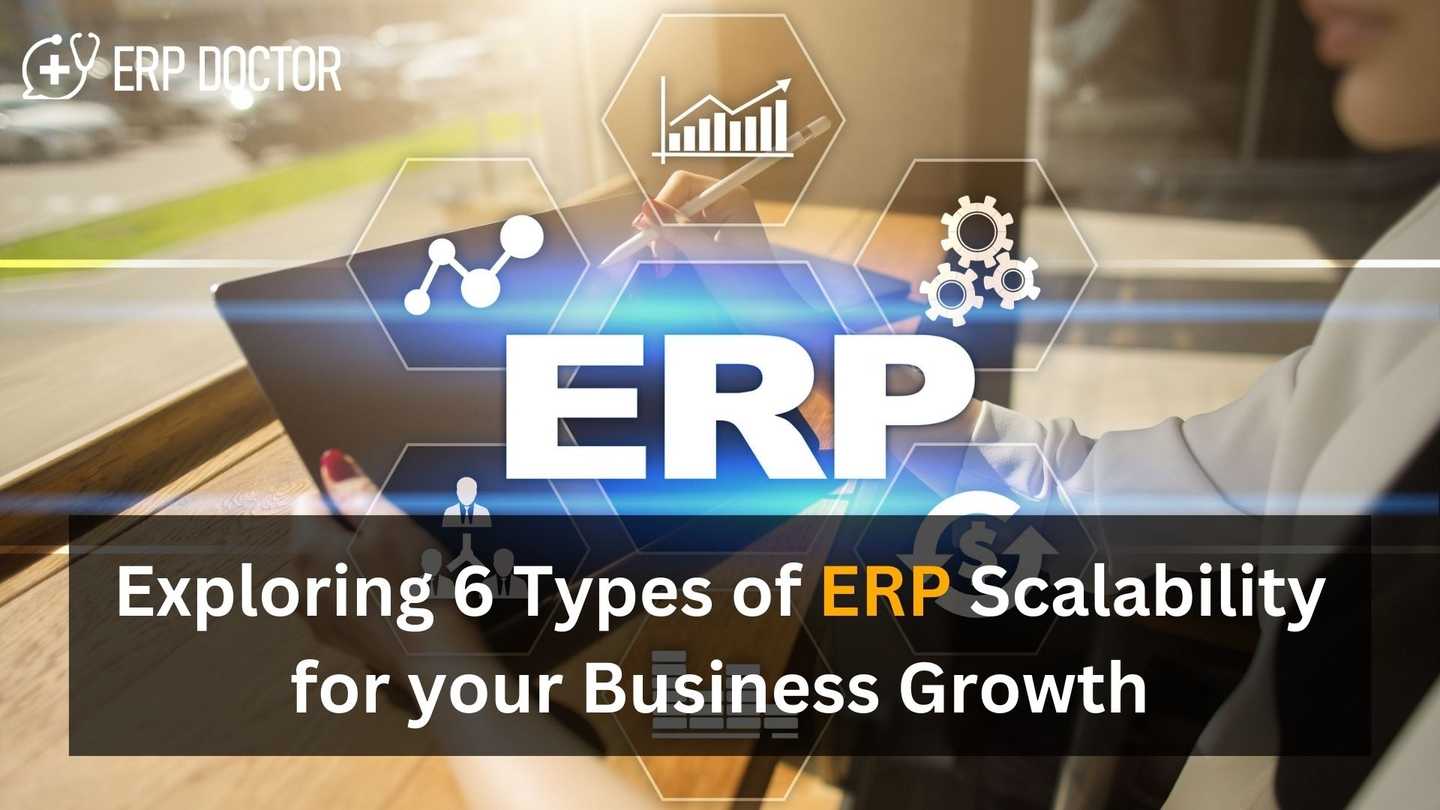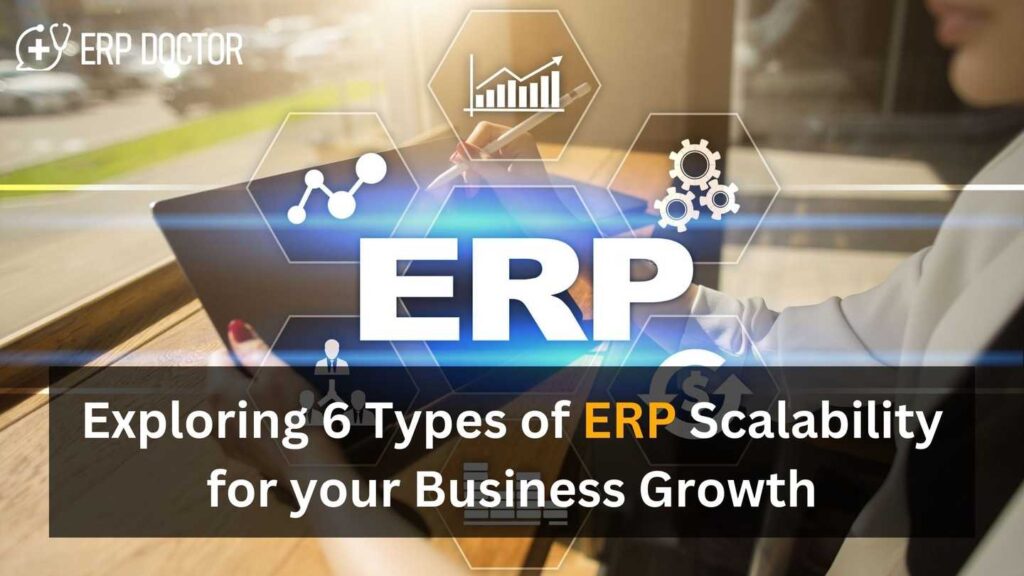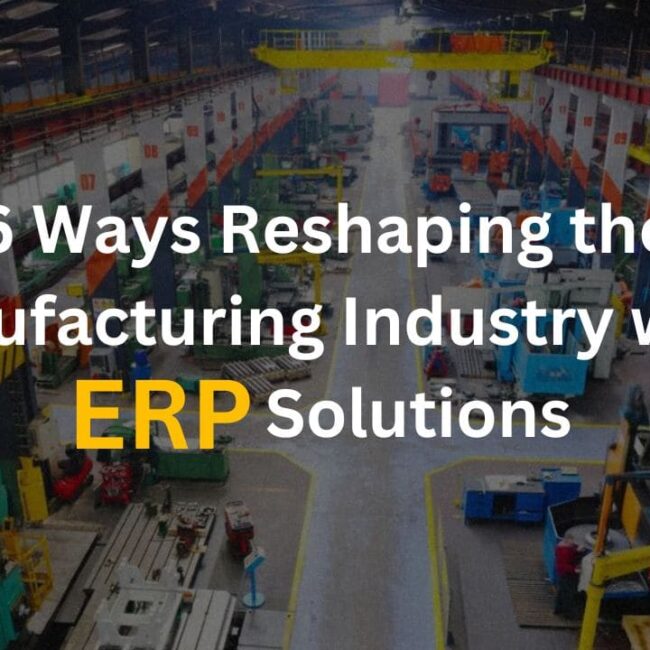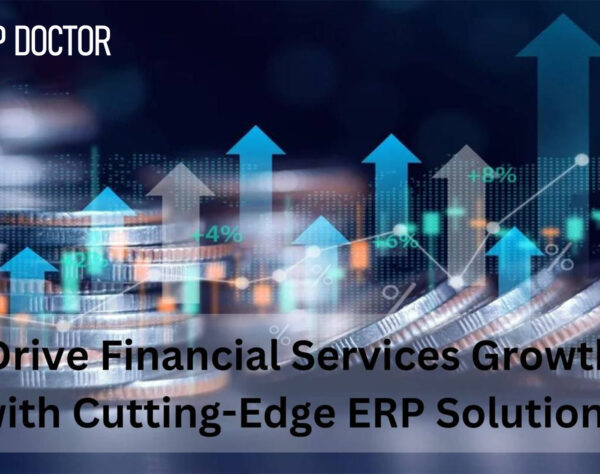
Exploring 6 Types of ERP Scalability for your Business Growth

Know the Vital Importance of ERP Scalability for your Industries
In today’s fast-paced business environment, having a scalable ERP (Enterprise Resource Planning) system is essential for sustainable growth and efficiency. Scalability in an ERP system ensures that as your business evolves, your software can handle increased demands without compromising performance. Let’s delve into the six key types of ERP scalability: Administrative Scalability, Function Scalability, Geographical Scalability, Load Scalability, Generation Scalability, and Heterogenous Scalability.
Type 1 : ERP Administrative Scalability
Administrative Scalability ability to manage an increasing number of users and administrative tasks effectively. As your business grows, the number of employees, departments, and data points will inevitably expand. An ERP with strong administrative scalability can accommodate this growth seamlessly, allowing for efficient user management, data access, and administrative controls. This type of scalability ensures that as your team expands, the system remains user-friendly and efficient, preventing bottlenecks in administrative operations.
Type 2 :ERP Function Scalability
Function Scalability is the capability of an ERP system to expand its functionalities and features as the business needs evolve. Initially, a business might require basic modules such as finance and inventory management. However, as it grows, the need for advanced features like CRM (Customer Relationship Management), HRM (Human Resource Management), and SCM (Supply Chain Management) might arise. An ERP with robust function scalability allows you to add these features without requiring a complete system overhaul, ensuring your ERP grows with your business needs.
Type 3: ERP Geographical Scalability
Geographical Scalability is a crucial ERP Scalability type system for businesses looking to expand their operations across different regions or countries. This type of scalability ensures that the ERP system can support multiple locations, languages, and currencies. It facilitates the smooth integration of new branches or offices, providing centralized control while accommodating local operational requirements. Geographical scalability is essential for maintaining consistent processes and data integrity across diverse geographical locations.
Type 4: Load Scalability
Load Scalability pertains to the ERP system’s ability to handle an increasing volume of transactions and data without degrading performance. As your business scales, the volume of transactions, number of users, and amount of data processed will increase. An ERP system with excellent load scalability can manage high transaction loads efficiently, ensuring that system performance remains optimal even during peak times. This ensures that your operations run smoothly without interruptions or slowdowns.
Type 5: Generation Scalability
Generation Scalability refers to an ERP system’s ability to adapt to new technological advancements and integrate with emerging technologies. As technology evolves, businesses need to leverage new tools and platforms to stay competitive. An ERP with generation scalability can seamlessly integrate with new technologies such as AI, IoT, and blockchain, ensuring that your business can take advantage of the latest innovations. This type of scalability future-proofs your ERP investment, making it adaptable to future technological shifts.
Type 6 :Heterogenous Scalability
Heterogenous Scalability is one of the abilities of an ERP Scalability types system to integrate and operate efficiently within a diverse IT environment. Businesses often use a variety of software applications and platforms. An ERP with heterogenous scalability can integrate with different systems, databases, and third-party applications, ensuring a cohesive and streamlined operation. This allows businesses to maintain their existing IT investments while enhancing their capabilities with a scalable ERP solution.
Investing in an ERP system with comprehensive scalability is crucial for long-term business growth and efficiency. By ensuring your ERP system has these six types of ERP Scalability administrative scalability, function scalability, geographical scalability, load scalability, generation scalability, and heterogenous scalability, you can future-proof your business and stay competitive in a dynamic market. Evaluate your ERP options carefully and choose a system that aligns with your growth objectives and operational needs.
Scalability isn’t just about handling more—it’s about handling better, smarter, and more efficiently. Make the right choice today and set your business on a path to sustainable success.
To learn more about our services, please visit us at: https://erpdoctor.in/
Embark on an inspiring journey today – Visit our website and discover a world of knowledge, creativity, and endless possibilities! Don’t miss out on exclusive content and exciting updates. Click here to explore and be part of our thriving community!







